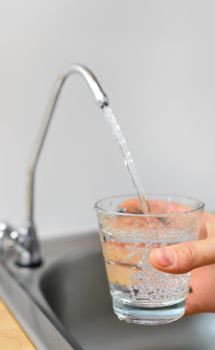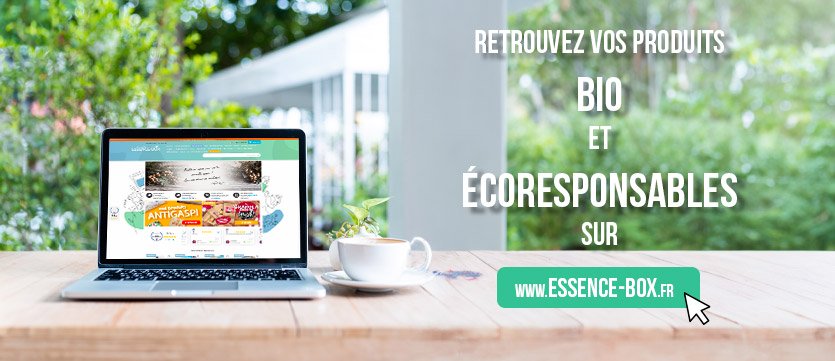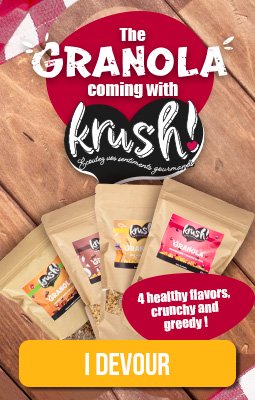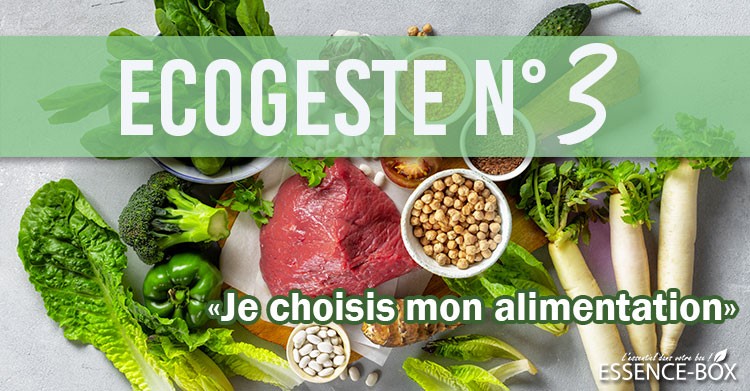There are many ways to adopt a diet that is respectful of the environment and these are far from being exhaustive. We are going to present to you some of them which seem to us the most important. So, of course, changes in consumption habits do not happen overnight, it happens gradually, but it is always possible to continue to learn and change your habits.
Don't forget that even small changes can make a difference!

I buy local and seasonal:
If there is one thing that is easy to change in your habits, it is this. Buying local AND seasonal will reduce your environmental impact. To do this, avoid imported foods that come from the other side of the world to arrive on your plate and prefer foods grown near you. You have a small producer not far away who sells his fruits and vegetables directly. It makes the locals work and in addition, you eliminate the intermediaries: it's more ecological, less expensive than in the supermarket and you reduce the impact linked to transport.

I reduce my meat consumption:
Meat production is very energy intensive and contributes significantly to greenhouse gas emissions. The main impacts of the production of beef, poultry, pork,... include greenhouse gas emissions, deforestation, water pollution and loss of biodiversity. This is why it is important to choose eco-responsible farmers who adopt ecological and sustainable practices.
How to find it? It's very simple: look for certified labels such as "organic" or "sustainable farming" to be sure that you are supporting environmentally friendly farmers.
You can also opt, a few days a week, for vegetarian meals or replace meat with fish (while being careful not to eat fish from intensive farming).
The FAO (Food and Agriculture Organization of the United Nations) estimates that the practice of animal husbandry accounts for 14.5% of global greenhouse gas emissions (particularly cattle farming which is responsible for both third of these emissions).

I drink tap water:

As we had already told you in our small ecological gestures on the end of plastic bottles , it is important to reduce your consumption of plastic bottles.
Tap water is at your fingertips, no packaging, no road transport. Plus, it's tested regularly to ensure it meets drinking water quality standards. It is therefore a shame to deprive yourself of it.
The main problem with tap water is its taste. It could not be easier. There are a lot of solutions like: ceramic beads , charcoal , filter jugs, etc...
You can also simply fill a bottle of tap water in advance and store it in the fridge, in a few hours, it will have lost its taste!
On top of that, drinking tap water is much more economical than buying plastic bottles. It's good for the planet, but also for the wallet!

I reduce my food packaging:
Beyond sometimes confusing the consumer on products with packaging much larger than the product. It generates a lot of waste reprocessing effort. So to limit them, it's a good idea to work on reducing packaging. Especially since plastic food packaging is one of the main pollutants of the oceans and it does not break down easily. If you haven't read it yet, we'll give you the link to our article on World Plastic Free Day . In short, here are some tips to reduce the use of plastic packaging:
- Buy food in bulk or in large quantities to reduce the amount of packaging. The other advantage is that you buy in reasonable quantities, so it also limits food waste.
- Choose products that have less unnecessary packaging and avoid over-packaged products. (and then it will make other manufacturers want to follow suit)
- Reuse packaging to store food. It is very easy to give a second life to jam jars, metal boxes, etc...
- Use reusable shopping bags. A fabric bag, kabat bag, or even cotton bulk bags to put your fruits and vegetables in.

I reduce food waste:
According to Ademe , food waste would amount to 30kg per person per year, including 7kg just for food waste. Beyond the waste, it is also our wallet that has been emptied for nothing! At a time when all energies and raw materials are increasing, taking advantage of its eco-friendly actions to save money is a good idea. If you want some ideas, you can refer to our article on our anti-food waste tips .
.jpg)
And because it's both for health and for waste (and the wallet), don't hesitate to plan your weekly menus. You only buy what you need, it allows you to manage the quantities (and you will also see it on your wallet).
Food waste is about 1/4 of the total weight of your bin, which is huge! Consider composting them. By mixing your food waste (peelings, eggshells, tea, coffee grounds,...) with garden waste (dead leaves, weeds, straw,...) you can create your own compost that will serve as a fertilizer for your garden.





 By Cindy et Benoit
By Cindy et Benoit